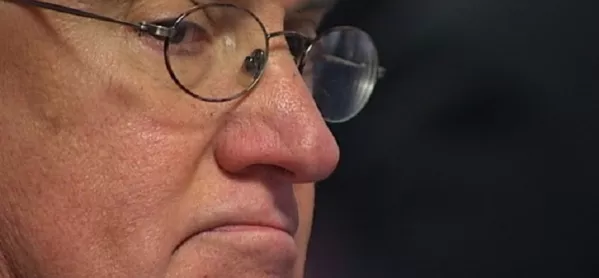On the basis that there is no such thing as bad publicity, I welcome Sir Michael Wilshaw’s recent comments about the quality of school governors. And I actually agree with a lot of what he says.
The statement that governance has a direct impact on the quality of education is good to see from a national figure. The role that governance plays in ensuring that every child receives the best possible education has never been more important. How to improve it, however, is the challenge.
The national profiles of governance and governor recognition are both inextricably linked to attracting the most skilled people into the role. If the government wants the very best, this must be addressed.
Currently, not enough is known about the role of governors and that is in part because of the fragmented system. What applies in a voluntary aided school may differ from a stand-alone academy, a community school or a multi-academy trust board. The implication is that fewer governors know their role in depth, which clearly links to attainment and improvement.
For my master’s degree in education, I examined 187 Ofsted reports. One school governing body was condemned in 34 words. Despite inspectors’ level of understanding of governance being more than variable, it lies at the heart of governance improvement. Inspectors express their dissatisfaction, but can’t point to the next steps. Governance should be integral to the DNA of all aspects of school development and improvement.
Some 380 people volunteer as national leaders of governance (NLG), giving up their time for free. They provide quality assured support managed by the National College for Teaching and Leadership, and still some local authorities and dioceses won’t engage with us. Governing bodies often don’t know we exist. It needs national leadership to publicise who we are and what we do among the education community.
Skilled, experienced governors started the move towards a professional volunteer community some years ago. Mandatory training for all new governors including headteachers, accredited professional development and governance research all feed into a self-sustaining improving system. As with educators this needs a framework to reach the self-sustaining point. We are on our way but are not quite there yet.
Good governance is a wonder to behold and supports the very best education for every child at that school. Well-rehearsed themes could rapidly improve governance:
- Quality assured accredited training and professional development.
- Mandatory induction training.
- A person skilled in governance on every trust board.
- Governance integrated into the support package of any school that needs help.
- Mentoring of new chairs by NLGs or people experienced in the role.
- Paid time off from work for governance.
- Well-trained clerks.
I hope Sir Michael listens to the governors who complete his call for evidence and engages with the governance community to support improvement. All we want is the best for the children in our schools. How we get there is the challenge.
Martin Matthews serves as a national leader of governance (NLG) and chair of governors.

